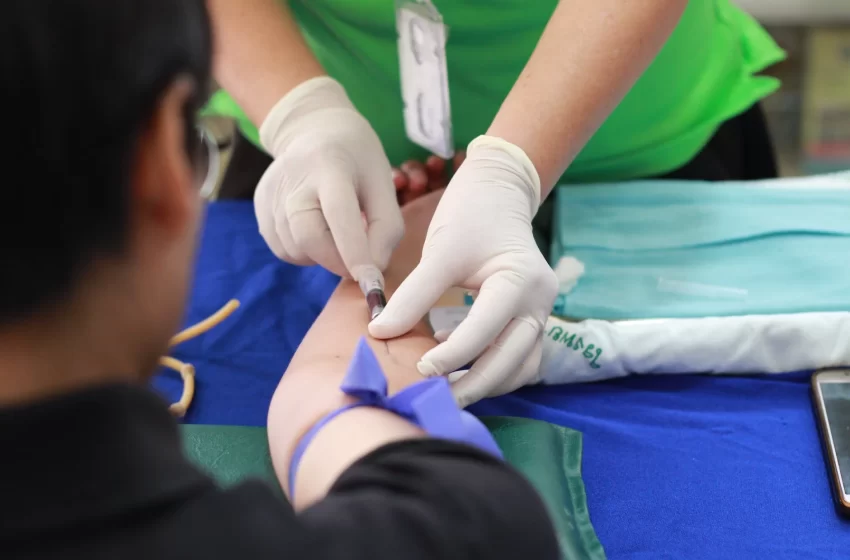Superbugs on the Rise: The Growing Threat of Antibiotic Resistance

Unveiling the silent menace: Discover how antibiotic resistance is stealthily transforming the landscape of modern healthcare.
Hey there, fellow health enthusiasts! Today, let’s dive into a topic that’s been causing quite a stir in the medical community: antibiotic resistance. We’ve all relied on antibiotics to treat infections at some point in our lives, but did you know that their effectiveness is in jeopardy? The alarming increase in antibiotic resistance poses a significant threat to our health and the entire world. Let’s explore this issue together and shed light on the potential consequences that we need to tackle head-on.
The Rise of Antibiotic Resistance
So, what exactly is antibiotic resistance, and why is it becoming such a pressing concern? Over the past few decades, the misuse and overuse of antibiotics have fueled the development of bacteria that are resistant to these life-saving drugs. This misuse occurs both in humans and in the agricultural sector, where antibiotics are often used in livestock.
Without proper regulations and surveillance systems, we are inadvertently assisting these “superbugs” in becoming more powerful and widespread. Easy access to antibiotics, globalization, and international travel have made it easier for resistant microbes to move across borders, making the issue of antibiotic resistance a global problem.
The consequences of antibiotic resistance are dire. Common infections that were once easily treatable may soon turn into life-threatening battles. Think of respiratory and urinary tract infections becoming more severe, prolonged, and difficult to treat. The increased resistance also puts a tremendous strain on healthcare resources, driving up costs and extending hospital stays. Ultimately, this phenomenon increases mortality and morbidity rates across the world.
The Global Impact
Antibiotic resistance is not a problem confined to one country or region—it’s a transnational issue. These “superbugs” respect no borders and have the potential to affect people from all walks of life. In an increasingly interconnected world, the spread of antibiotic-resistant bacteria has become more prevalent, posing a grave threat globally.
Not only does antibiotic resistance lead to untreatable infections and deteriorating health, but it also comes with a hefty economic burden. Health systems and governments face soaring costs due to prolonged illnesses, failed treatments, and increased hospitalizations. Productivity takes a hit as people stay out of work for longer periods. To mitigate these far-reaching consequences, sustainable investment in antibiotic research and development is crucial.
Solutions and Initiatives
Thankfully, actions are being taken to address the antibiotic resistance crisis. Raising awareness among the public and healthcare professionals plays a vital role. Educational campaigns aimed at promoting responsible antibiotic usage are on the rise. By advocating for the appropriate prescription and usage of antibiotics, we can prevent their misuse and reduce the development of drug-resistant bacteria.
Alongside creating awareness, regulatory systems need strengthening. International cooperation and standardization of antibiotic prescribing practices can help reduce unnecessary use. Implementing robust surveillance systems to monitor antibiotic resistance patterns globally is another essential aspect. By tracking the emergence and spread of resistant strains, we can better understand the magnitude of the problem and take appropriate action.
Furthermore, research and development efforts must be intensified to discover new antibiotics and alternative treatments. Effective and safe drugs are essential to combatting antibiotic resistance. Encouraging innovation in this field is key to providing effective solutions for the future.
A Call for Action
Addressing the antibiotic resistance crisis requires a collective effort. Governments, healthcare sectors, academia, and the pharmaceutical industry must collaborate to find viable solutions. Sharing knowledge and resources through international partnerships is vital in this battle.
While systemic changes are necessary, individual actions matter too. We can empower ourselves and demand responsible antibiotic use. It’s crucial to complete the full course of antibiotics as prescribed, even if we start feeling better before finishing the medication. By doing so, we can ensure that all the bacteria causing the infection are eradicated, reducing the chances of resistance development.
Most importantly, we need to advocate for stricter regulations and policies governing antibiotic use, both at the governmental and institutional levels. Transparent guidelines and comprehensive plans can curtail unnecessary antibiotic consumption and safeguard the efficacy of these life-saving drugs for future generations.
In Conclusion
The rise of antibiotic resistance is an urgent matter that requires immediate attention. Superbugs put our health and the health of the global population at great risk. By understanding the causes, consequences, and potential solutions surrounding antibiotic resistance, we can play an active role in combating this crisis.
Let’s stay informed, support research and development efforts, and work together to ensure that antibiotics remain effective tools in the fight against infections. Together, we can overcome the challenges posed by antibiotic resistance and protect the health of current and future generations.
